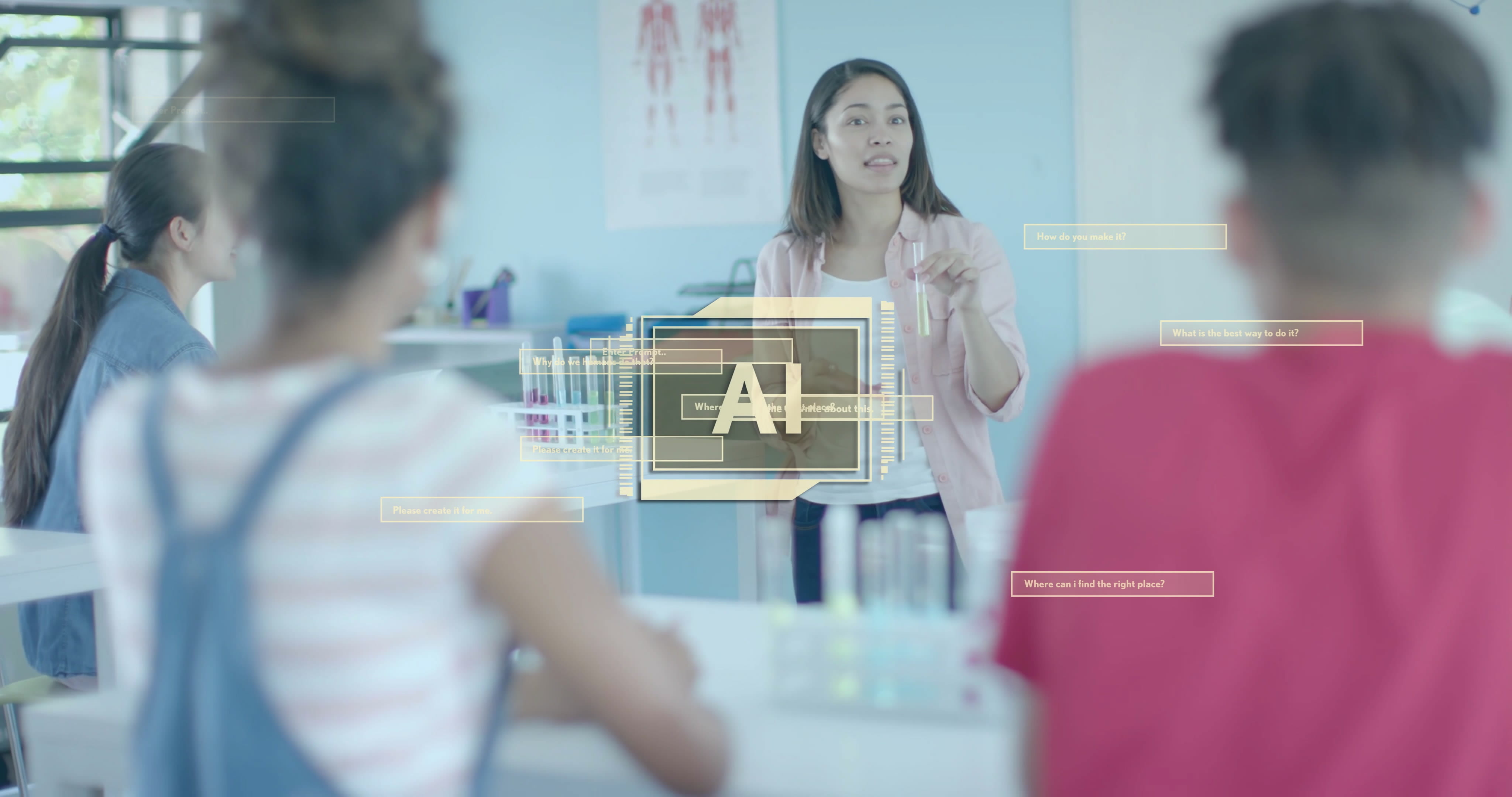Belmont University has selected the Digital Education Council's AI Literacy Framework as its model for AI Literacy education for this first phase of its AI Literacy implementation. The DEC framework is a comprehensive framework and includes five dimensions key to developing an essential skill set for understanding, evaluating, and ethically using AI. The DEC AI Literacy Framework seeks to develop skills beyond technical knowledge, addressing critical thinking, ethical awareness, and creativity through AI.
This framework helps faculty, staff, and students explore the questions:
- How does AI work?
- How do I evaluate AI output?
- How do I ensure AI is used ethically and responsibly?
- How do I ensure humans remain at the core?
- How do I apply AI in a specific context?
We believe that higher education plays a vital role in promoting the effective use of AI across disciplines — from healthcare and law to business, audio engineering, and the arts. The DEC’s AI literacy framework provides a structured way for institutions, such as Belmont, to prepare students for these challenges.
Get ready to learn with us!
Dimension 1: Understanding AI
Encompasses understanding how AI systems work, the principles of data collection, processing, and interpretation, and the implications of AI-generated output. Proficiency in this area enables individuals to critically engage with AI tools, assess their capabilities and limitations, and make informed decisions about their use.
| Competency Level 1AI & Data Awareness | Competency Level 2AI & Data in Action | Competency Level 3AI & Data Optimization | |
|---|---|---|---|
|
Self-paced Learning |
AI & Data Awareness | AI & Data in Action |
AI & Data Optimization
|
|
Events & Instructor-guided |
AI & Data Awareness |
AI & Data in Action
|
AI & Data Optimization |
Dimension 2: Critical Thinking & Judgment (Evaluation)
Focuses on the ability to evaluate AI-generated content, discern biases, and apply logical reasoning when using AI in decision-making. It includes skills such as verifying sources, identifying misinformation, recognizing limitations in AI-generated insights, and ensuring that human judgment remains central to AI-supported processes. Critical thinking ensures that AI is used as a tool for augmentation rather than blind reliance.
| Competency Level 1Question AI Output | Competency Level 2Evaluate AI Output | Competency Level 3Challenge AI Output | |
|---|---|---|---|
|
Self-paced Learning |
Question AI Output
|
Evaluate AI Output
|
Challenge AI Output
|
|
Events & Instructor-guided |
Question AI Output
|
Evaluate AI Output |
Challenge AI Output |
Dimension 3: Ethical & Responsible Use
Covers the ethical considerations and governance frameworks necessary for responsible AI adoption. It includes understanding AI ethics principles (such as fairness, transparency, accountability, and privacy), recognizing potential risks (such as bias, discrimination, and misinformation), and implementing responsible AI use practices. It also involves navigating regulatory and institutional guidelines to ensure compliance and integrity in AI applications.
| Competency Level 1Understand Risks | Competency Level 2Apply Responsible Practices | Competency Level 3Shape Responsible Practices | |
|---|---|---|---|
|
Self-paced Learning |
Understand Risks | Apply Responsible Practices | Shape Responsible Practices
|
Dimension 4: Human-Centricity, Emotional Intelligence & Creativity
Emphasizes the importance of human skills in an AI-driven world, including empathy, adaptability, communication, lifelong learning, and mindset. As AI automates tasks, human-centered skills become critical in maintaining ethical decision-making, fostering inclusive and diverse AI practices, and ensuring AI aligns with societal values. It also involves managing the impact of AI on human interactions and well-being in educational and professional settings.
| Competency Level 1Awareness of Human–AI Interaction | Competency Level 2AI as a Collaborative Tool | Competency Level 3Develop Human-Centered AI Practices | |
|---|---|---|---|
|
Self-paced Learning |
Awareness of Human–AI Interaction | AI as a Collaborative Tool
|
Develop Human-Centered AI Practices
|
Dimension 5: Domain Expertise
Focuses on the specialized knowledge and skills required to understand, assess, and manage the impact of AI within a specific academic or professional context. It includes the ability to critically evaluate AI applications within a given discipline, adapt AI tools to enhance professional practices, and navigate domain-specific ethical, regulatory, and operational challenges.
| Competency Level 1Applied AI Awareness | Competency Level 2AI Application in Professional Contexts | Competency Level 3Strategic AI Leadership | |
|---|---|---|---|
|
Events & Instructor-guided |
Applied AI Awareness | AI Application in Professional Contexts
|
Strategic AI Leadership |

